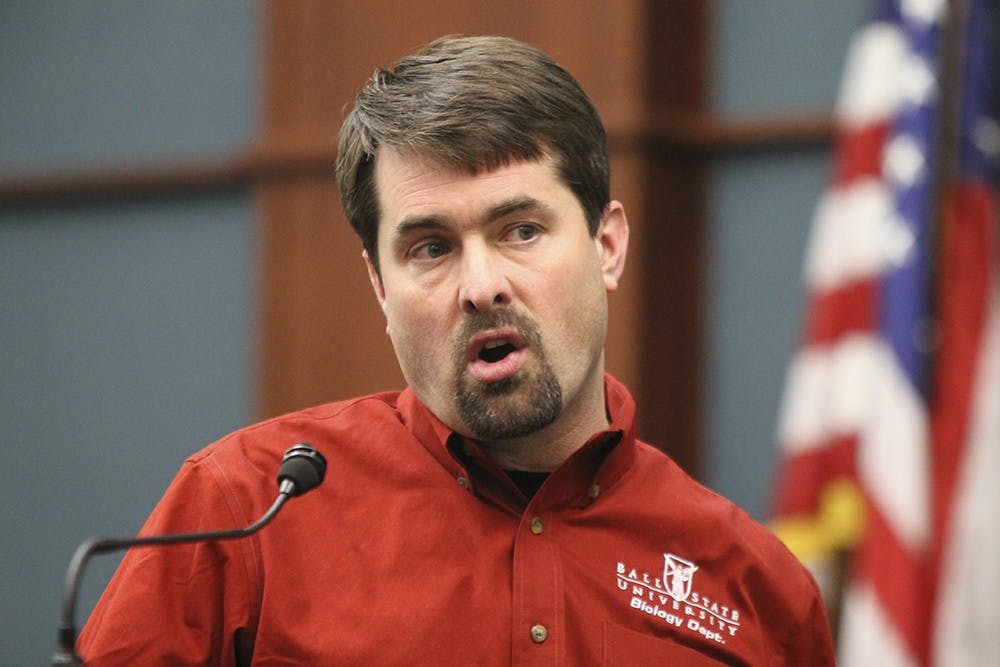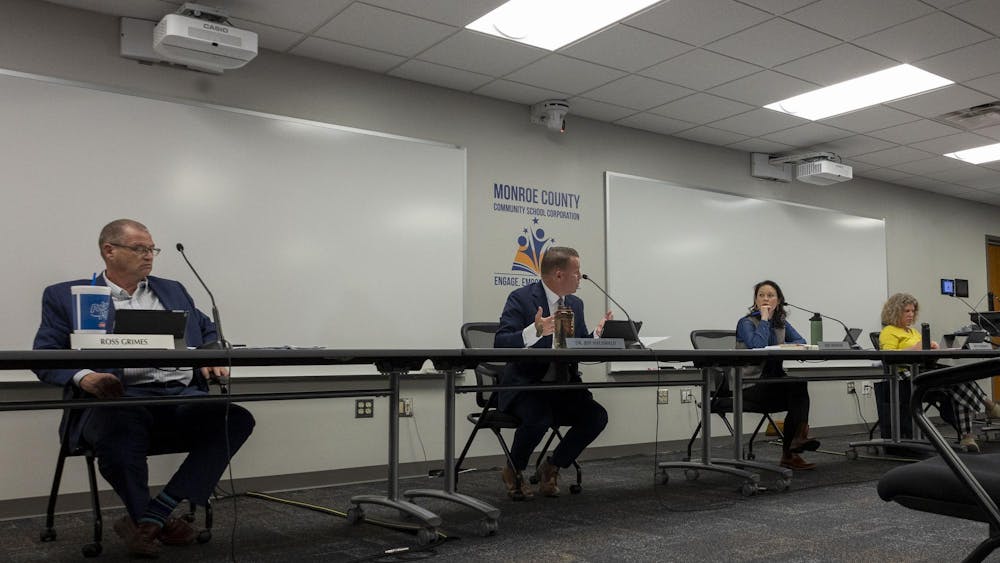People picketed, protested and dressed up to fight the city, but tempers were cool Monday night as deer biologist Tim Carter stood in front of a mostly packed council chamber at ?Bloomington City Hall.
Carter, a biology professor at Ball State University, came to Bloomington to present data on his study of fawns along with his plan to study adult deer in Bloomington/Monroe County to city residents who are passionate about deer.
“It’s polarizing here, there’s no doubt about it,” Carter said. “In most other areas the passion, the extremes, are not there. Everywhere you go people have opinions about deer, but in most places the deer are not causing as much controversy as they are here.”
In November, protesters gathered at City Hall to voice their objection to the City’s plan to cull the deer population around Griffy Lake with sharp shooters.
Their anger was mostly directed at Councilmen Dave Rollo and Andy Ruff, both of whom largely supported the Deer Task Force conclusion.
Carter said he and his team of graduate students came to Bloomington after seeing news stories featuring the deer cull and the protest surrounding it.
Rollo, who has received much ire over his stance on the deer issue, introduced Carter on Monday night.
Now, the sharp shooters have been pulled away after White Buffalo, the company hired to shoot the deer, recommended suspending the operation after the deer did not go for the bait.
Carter said he has no opinion on the Deer Task Force Report, which recommended sharp shooting the deer around Griffy Lake, but said his experience studying deer in Bloomington is unique.
As he stood at the lectern, many in the crowd came with pen and paper, taking notes as if they were students in one of Carter’s classes during his hour-long presentation.
Carter’s presentation was followed by a 30-minute question and answer session in which residents raised questions concerning Carter’s new plan to catch adult deer and track them with special collars.
After his presentation, people came to the podium to ask Carter questions about his proposed study.
The questions concerned Carter’s research methodology, funding and the safety of the animals. Carter seemed to ease the concern of some, despite previously difficulty in doing just that.
After years of controversy surrounding the Deer Task Force Report, the crowd at Carter’s presentation was quiet, eager to listen to Carter’s findings and proposed study.
Carter reassured those in attendance he is taking every measure to make sure studies are done in a safe way with no deaths.
Carter said his teams plans on capturing deer with nets, traps and dart guns and plans to sedate the deer in order apply a GPS or VHF radio collar, which they will use to track the deer.
Lastly, Carter asked the residents of Bloomington for their help in his study.
During the presentation, Carter asked people to call the deer hotline and email his team if they spot deer on their property.
But if past experience is any indicator, Carter’s work won’t be easy.
“I have had people that have cut me off, blocked me out and yelled at me for 15 minutes telling me that I am the devil’s spawn when all I was, was tracking a deer,” Carter said. “And then I’ve had people that have come up to me and given me a pat on the back ... I have had literally every extreme kind of contact with the City of Bloomington.”
Carter’s new study, titled Deer 2.0, will research adult deer in and around ?Bloomington.
His team plans to trap and track deer in urban and rural areas over a two to three-year period, similar to his study on fawn.






